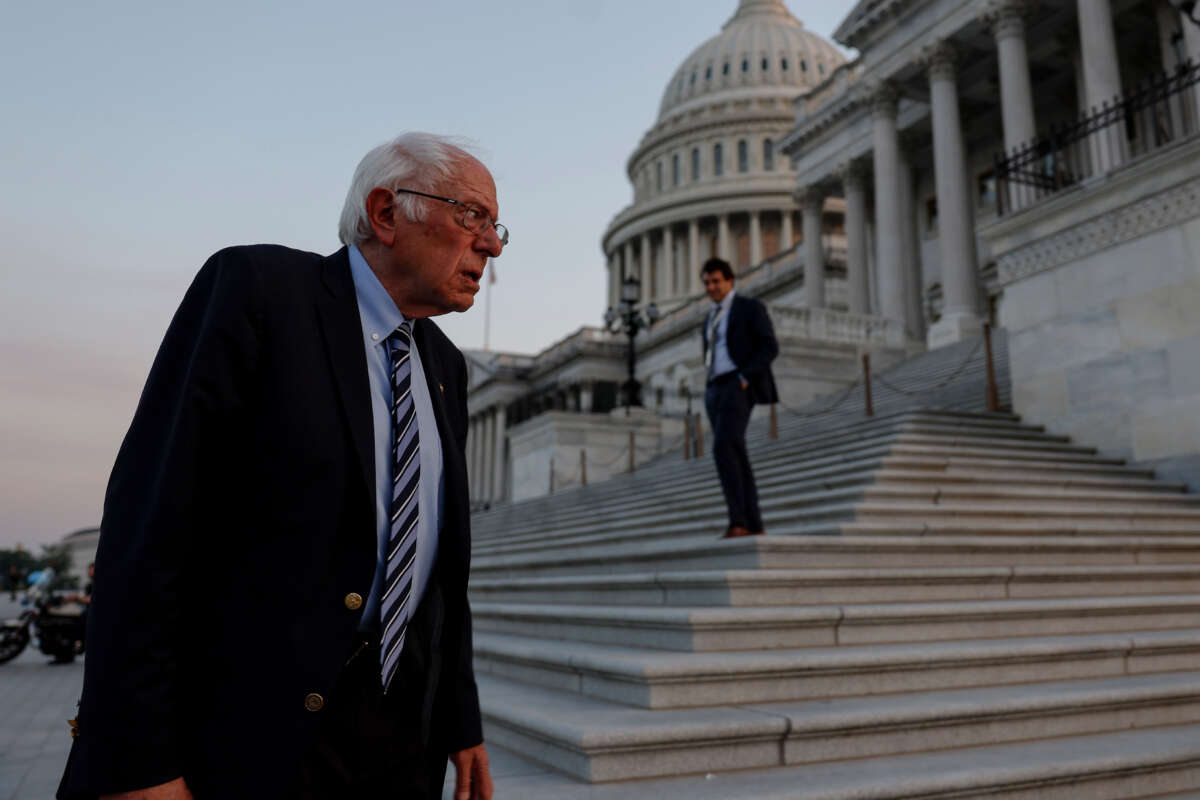Sen. Bernie Sanders (I-Vermont) has fired a shot across the bow to the White House in his latest move in his quest to lower prescription drug prices in the U.S.
Sanders has vowed to oppose all health-related nominees, including President Joe Biden’s nominee to lead the National Institutes of Health (NIH), until the Biden administration presents a “comprehensive” plan to address the prescription drug price crisis in the U.S.
“I will oppose all nominations until we have a very clear strategy on the part of the government … as to how we’re going to lower the outrageously high cost of prescription drugs,” Sanders told The Washington Post.
This is a powerful pledge coming from Sanders. As the chair of the Senate Health, Education, Labor and Pensions (HELP) Committee, Sanders decides whether or not the committee considers Department of Health and Human Services nominees — meaning that, unless Sanders decides to bring a nominee under consideration, they will not be able to be confirmed.
Sanders’s pledge came on the same day that his office released a report on the price of prescription drugs that were developed using U.S. tax dollars, demonstrating the need for action on drug prices.
The report found that nearly every drug that’s been created with the aid of taxpayer-funded NIH research is more expensive for Americans than for people in other countries, with pharmaceutical companies using research from the NIH, which can come in at nearly every step of the drug development process, to create and commercialize new drugs.
The average price of a new drug developed with NIH aid in the past two decades is now $111,000, according to the report. Some drugs that carry especially absurd price tags were developed using taxpayer support — one hemophilia drug, Hemgenix, costs $3.5 million in the U.S., despite its production cost being estimated to be only 2 percent of its price.
The report highlights some of the most absurd differences between U.S. and other comparably wealthy countries’ prices for drugs, despite those drugs being developed using U.S. taxpayer money. Gilead Sciences’s cancer drug Yescarta costs $212,000 in Japan, but costs double the price, $424,000, in the U.S. Another drug, a hormone therapy drug called Myalept, costs $580,000 a year in France — and $1.9 million a year in the U.S. Even cheaper drugs cost more in the U.S.: Emergency contraception Ella is $40 a pill in the U.S., but only $10 in France.
Meanwhile, while NIH researchers were instrumental in the development of Hemgenix and Yescarta, the government sees little to no money back from those discoveries; the NIH gets 1 percent of sales of Hemgenix. The company that helped create Yescarta, while being “highly dependent” on NIH research and not having produced any approved products yet, was sold to Gilead for $11.9 billion in 2015 with a nearly $700 million payout for its CEO.
“What makes the greed of the pharmaceutical industry so reprehensible is the fact that the American people are paying twice for some of the most expensive prescription drugs on the market: First through their taxes and a second time at the pharmacy counter,” Sanders said. “Now is the time for the Biden Administration to take executive action to substantially lower the price of prescription drugs and to take on the unacceptable corporate greed of the pharmaceutical industry.”
In a press release on the report, Sanders’s office urges the White House to take actions like reinstating the “reasonable pricing clause” for NIH-developed drugs.
The reasonable pricing clause was an initiative in the ‘90s by the NIH to enact pricing constraints on drugs developed using public resources, in response to the then-most expensive drug in history — an AIDS drug released in 1987 that cost $8,000 a year. But the initiative failed after major pharmaceutical giants like Pfizer, Abbott and Merck refused to enter new contracts subject to the clause, even while doing work with NIH scientists.
